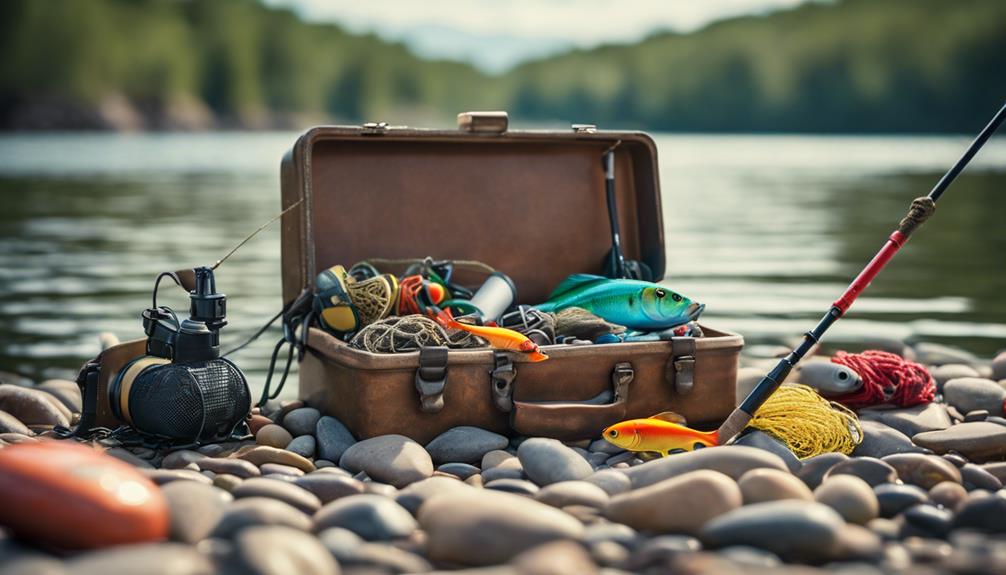Fishing is a beloved pastime for many, offering a chance to connect with nature, unwind, and even catch dinner. However, a common question arises among both novice and seasoned anglers: Do I need a license for fishing? The answer to this question isn’t as straightforward as it may seem, as fishing regulations vary widely depending on location, type of fishing, and the species being targeted. In this article, we’ll explore the ins and outs of fishing licenses, why they’re necessary, and how to obtain them.
Understanding Fishing Licenses: What Are They?
Fishing licenses are permits issued by state or local governments that allow individuals to fish in designated waters. The primary purpose of these licenses is to regulate fishing practices, ensure sustainable fish populations, and protect aquatic ecosystems. Most states require anglers to purchase a fishing license before casting their lines, and the cost of these licenses can vary significantly based on factors such as age, residency status, and the type of fishing you plan to do. In some cases, certain groups, like children or seniors, may qualify for discounted or free licenses.
Why Do I Need a Fishing License?
The question, “Do I need a license for fishing?” can be answered with a clear “yes” for most cases. Fishing licenses serve multiple important functions. First, they contribute to fishery management efforts, allowing state wildlife agencies to monitor and regulate fish populations effectively. This is crucial for maintaining healthy ecosystems and ensuring that future generations can enjoy fishing. Additionally, the funds generated from fishing licenses often go towards conservation projects, habitat restoration, and public education regarding responsible fishing practices. Ultimately, possessing a valid fishing license not only keeps you compliant with the law but also supports the sustainability of fishing resources.
Types of Fishing Licenses You Might Need
Fishing licenses come in various forms, depending on your fishing activities and the regulations of your state. Generally, there are two main types: freshwater and saltwater fishing licenses. Freshwater licenses are required for fishing in lakes, rivers, and streams, while saltwater licenses are necessary for fishing in oceans, bays, and estuaries. Additionally, many states offer specialized licenses for specific types of fishing, such as fly fishing or ice fishing. Temporary licenses are also available for tourists or those who only fish occasionally, allowing them to enjoy the sport without committing to a full season license.
How to Obtain a Fishing License
Acquiring a fishing license is typically a straightforward process. Most states allow you to purchase a license online through their wildlife agency’s website, making it convenient to obtain one from the comfort of your home. Alternatively, you can buy a license at designated retail locations, such as tackle shops or sporting goods stores. When applying for a fishing license, be prepared to provide personal information, including your name, address, date of birth, and sometimes additional identification. It’s essential to check your state’s specific requirements, as they can vary widely.
Fishing License Exemptions: Who Doesn’t Need One?
While the answer to “Do I need a license for fishing?” is generally affirmative, there are several exceptions. Many states designate specific days each year as “free fishing days,” during which residents can fish without a license. Additionally, certain groups may be exempt from needing a license, such as children under a certain age, individuals fishing on private property, or those participating in designated programs aimed at introducing fishing to new anglers. Always check local regulations to ensure compliance and take advantage of any exemptions that may apply.
The Consequences of Fishing Without a License
Fishing without a valid license can lead to serious consequences. Most states enforce fishing regulations strictly, and being caught without a license can result in hefty fines, confiscation of your fishing gear, or even legal repercussions. In addition to the potential legal penalties, fishing without a license undermines conservation efforts and can harm local ecosystems. It’s essential to educate yourself about your state’s fishing regulations and ensure you are in compliance before heading out on the water.
Fishing Regulations and Conservation Efforts
Fishing licenses are not just about permission; they also play a crucial role in conservation efforts. The revenue generated from fishing licenses is often allocated to habitat preservation, fish stocking programs, and public education initiatives aimed at promoting sustainable fishing practices. Many states also implement catch limits, size restrictions, and seasonal closures to protect vulnerable fish populations and ensure the health of aquatic ecosystems. As an angler, being aware of these regulations is essential, not only for legal compliance but also for contributing to the sustainability of fishing resources.
Final Thoughts: Be a Responsible Angler
In summary, understanding the question “Do I need a license for fishing?” is vital for anyone who enjoys this popular outdoor activity. A fishing license is typically required, and it serves as a critical tool for fishery management and conservation efforts. By obtaining a license and adhering to local regulations, you can enjoy your fishing experience while contributing to the health of aquatic ecosystems. Whether you’re a novice or a seasoned angler, remember that responsible fishing practices not only enhance your enjoyment but also ensure that future generations can share in the joy of fishing. So, before you head out to your favorite fishing spot, make sure you have your license in hand and are informed about the regulations in your area. Happy fishing!
